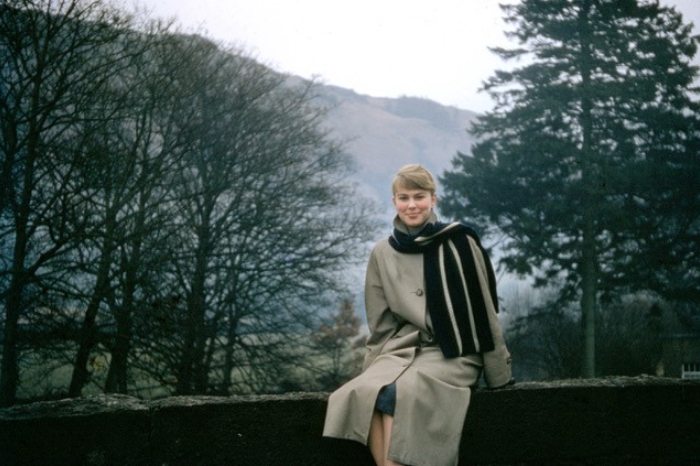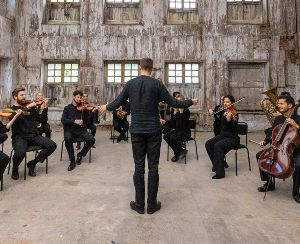Manchester alumna Judith Sear established the Sear Family Cancer Research Fund after losing her son, Jason, to adrenal cancer. In this interview, Judith explains how Jason’s diagnosis was the driving force behind a $1.3 million (approximately £1 million) donation to our university, and her hopes for the difference the funding will make.
Acts of generosity can be inspired by many things, both good and terrible. Indeed, it was the pain of losing a young family member to cancer that inspired in Judith Sear a new purpose in life to give back.
Judith and her late husband Tim, both Manchester alumni and North American Foundation for The University of Manchester (NAFUM) board members, established the Sear Family Cancer Research Fund in memory of their son Jason, an outgoing and warm father-of-three, who died of a rare form of adrenal cancer aged just 40.
Remembering Jason
Judith recalls the evening Jason’s high school sweetheart and wife, Stacey, rang from the family’s Colorado home with the news their son was unwell with a suspected kidney stone. Further tests revealed the devastating news that the kidney stone was in fact terminal adrenal cancer.
Despite gruelling treatment and its exhausting side effects, Judith remembers Jason’s good nature shining through in dark times; how he brought cookies to chemotherapy and remained positive despite knowing he would never recover.
“It was a really miserable prognosis,” Judith shares. “He and his wife were extraordinarily brave, and the kids carried on with school and sports. They were fabulously brave all the way through.”
Finding direction in the darkness
The void left after losing a son, husband and father can never be filled, but the Sear Family Cancer Research Fund has brought hope and direction to the family after such a tragedy.
Donating in Jason’s memory to cancer research at the University was a family decision and, for Judith, she felt she “owed so much to Manchester”.
“It means something good is coming out of what the family all suffered,” Judith reflects.

Judith Sear wearing a University of Manchester scarf
Supporting future breakthroughs
When it comes to how the Sear Family Cancer Research Fund will be used, Judith is philosophical – knowing that all research is contributing to progress, even if it hasn’t yet produced conclusive results or led to a new treatment path.
“Cancer isn’t just one disease; it is many diseases; what we’re treating is the proliferation of cells that damage the body systems. So, we didn’t put any conditions on our gift. It was just ‘spend it as you need it, where you need it’. And I think that’s fantastic.
“If we can find a way of holding cancer at bay while we continue to research, it makes such a difference to families and individuals. I leave it up to the scientists to say what we should be looking into, even if it leads to a dead end. I say ‘just do it. Just carry on’.”
Judith, who is a great grandmother now, reflects that 15 years on from Jason’s passing she has grown even more determined to do good and to “make this count in a world where there is so much more suffering than anything we ever went through”.
That is the beauty of Manchester – it encourages a broad range of ambitions and interests.
The past’s influence on the future
Judith recounts her experience at our university, then the Victoria University of Manchester, with great affection. Adopted as an infant in 1940, her father died when she was seven years old from complications of a gallbladder infection. At 19, she lost her mother to ovarian cancer soon after moving from her childhood home in Neath, South Wales to Manchester to study a BA in General Arts.
Judith remembers lectures in the Faculty of Arts building (today’s Samuel Alexander Building), studying in the Main Library and eating egg curries at a tiny Indian café on Oxford Road. Tim, fresh from two years of National Service in the Royal Air Force, sometimes passed the time at the Burlington Working Men’s Club, opposite the old Students’ Union, where a dancer would perform “dressed only in a bunch of bananas”.
It was in a Swedish language class that she met Tim. The couple married following his completion of a graduate programme at Copenhagen University in 1961. They then took a passenger ship from Liverpool to Canada and their adventures as a couple went global.
Judith reflects on the importance of an “equal partnership, taking advantage of opportunities” that came their way and giving back – “We always felt very lucky.”
Contributing to a better future
Hugely positive about the opportunity “luck and privilege” has given the couple to leave a legacy at the University, Judith passionately encourages others to do the same.
“Don’t hold back. Don’t hesitate,” she says. “Find out more about the work researchers do at Manchester and you’ll probably discover they could really use your money. There are all kinds of things that it can be used for.”
She adds: “Be realistic and realise that even though your money might not go to something glamourous, it’s still so important. Send an unrestricted gift and let the organisation decide where they want to use it, then savour the joy in your heart knowing you contributed to something worthwhile, something that will have a positive impact.
“By supporting Manchester’s dynamic researchers with any donation, large or small, you could help change someone’s life. Just get involved, you won’t regret it.”
To make a gift to support early-career cancer researchers visit: manchester.ac.uk/manchesterminds.



-(2).jpg)
.jpg)
